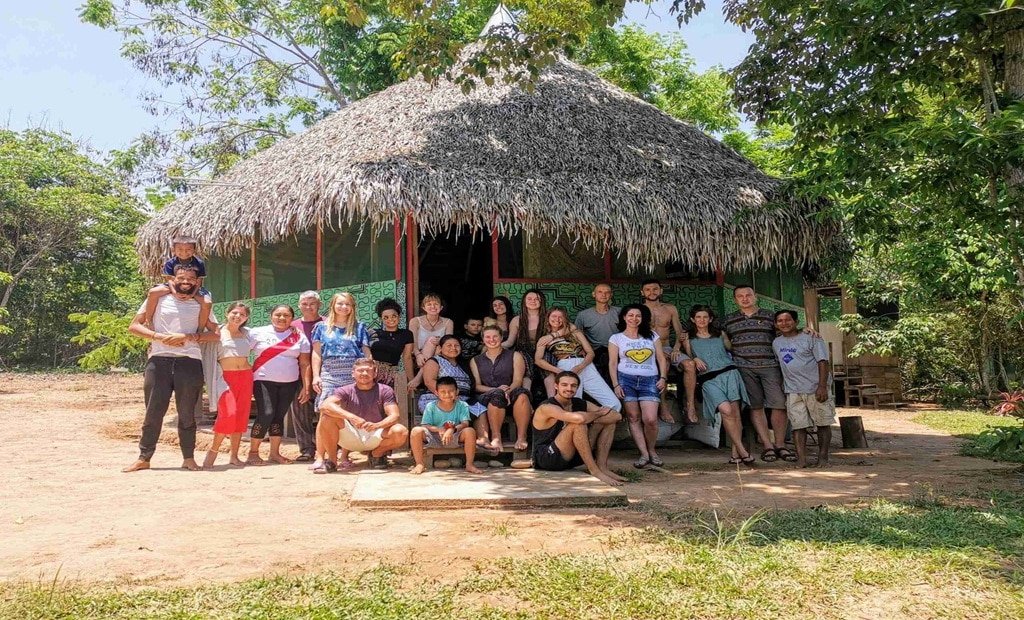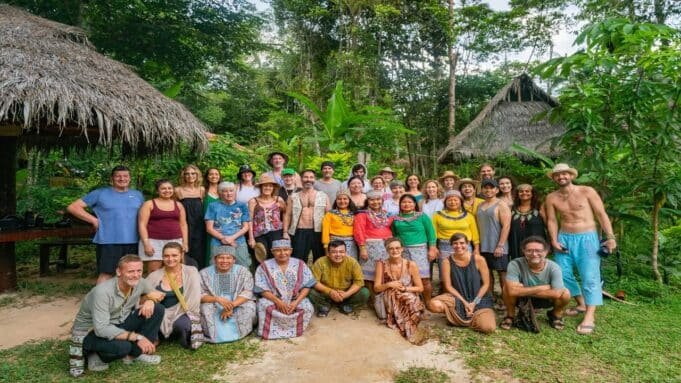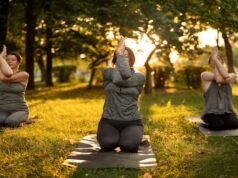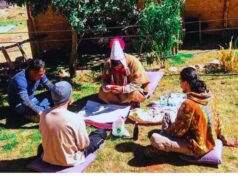Ayahuasca is a powerful, traditional plant medicine used for centuries by indigenous Amazonian cultures. Today, it’s at the center of spiritual retreats that attract people from around the world seeking emotional healing, self-discovery, and deeper spiritual connection.
While Ayahuasca retreats can be transformative, they also require careful preparation, awareness of risks, and thoughtful integration. This article explores what Ayahuasca retreats involve, their benefits, and how to participate safely and respectfully.
What is Ayahuasca?
Ayahuasca is a psychoactive brew made from two main ingredients: the Banisteriopsis caapi vine and the leaves of the Psychotria viridis plant. When combined, these plants create a potent mixture that induces visions, emotional purging, and altered states of consciousness.
Traditionally, Ayahuasca has been used by shamans in the Amazon for healing and spiritual guidance. Today, it’s offered in retreats that aim to preserve these ceremonial practices while offering them to a wider audience.
What Happens at an Ayahuasca Retreat?
An Ayahuasca retreat typically spans several days and follows a structured format. Participants are encouraged to prepare through dietary restrictions and mental focus, often called the “dieta.” Ceremonies are held in the evenings under the guidance of experienced shamans or facilitators.
These sessions include drinking the Ayahuasca brew, followed by several hours of intense introspection, visions, and emotional release. Integration sessions, often held the next day, help participants reflect on their experiences, ask questions, and begin processing insights.
Read More: How Far Did Sweet Potatoes Travel to Georgia?
Potential Benefits of Ayahuasca Retreats

Many people report life-changing effects from Ayahuasca retreats. These benefits may include emotional healing, relief from anxiety or depression, a sense of spiritual awakening, and long-term shifts in behavior or mindset. Ayahuasca can help individuals gain clarity about past trauma, relationships, life purpose, and internal struggles. While not guaranteed or universal, these outcomes have been widely described by participants across different cultural and personal backgrounds.
Here are a few key reported benefits:
- Emotional release and trauma healing
- Reduction in symptoms of anxiety, depression, and PTSD
- Increased self-awareness and introspection
- Stronger spiritual connection or renewed purpose
- Improved relationships and communication
- Enhanced motivation for healthy lifestyle changes
While these benefits can be life-changing, they depend greatly on the individual’s mindset, the quality of the retreat, and the support available during the integration phase. It’s also important to note that Ayahuasca is not a quick fix or a universal cure—it is a tool that must be used responsibly and with intention.
Risks and Precautions
Despite its potential, Ayahuasca is not suitable for everyone. Physical side effects include nausea, vomiting, diarrhea, and increased heart rate. Psychologically, some people may experience intense fear, confusion, or distressing visions.
Those with a history of mental illness or those taking certain medications (like antidepressants) face heightened risks. Participants must undergo medical screening and be honest about their health history. Additionally, because Ayahuasca contains DMT, it is considered illegal in many countries.
Read Must: Health Insurance for Traveling Nomads of South Dakota
Choosing the Right Ayahuasca Retreat
Not all retreats are equal. When choosing a retreat, it’s important to research its reputation, safety practices, and leadership. Look for trained shamans or facilitators with cultural knowledge and ceremonial experience. Ensure the retreat includes medical oversight, preparation guidance, and integration support.
Avoid commercialized centers that lack transparency or treat the experience as a trend rather than a sacred practice. Ethical retreats also respect and support the indigenous cultures from which these traditions originate.
Location and Legal Considerations
Ayahuasca Retreats is not legal in all countries. Some nations, like Peru, Brazil, and Colombia, allow their use in traditional and ceremonial contexts. If you plan to travel abroad, ensure the retreat is operating legally to avoid legal risks and ensure a stable environment.
Authenticity of the Retreat
Look for centers that honor the cultural origins of Ayahuasca Retreats. Retreats guided by trained shamans—especially from indigenous Amazonian traditions—tend to offer more authentic and respectful experiences. Be cautious of retreats that over-commercialize the experience or lack cultural grounding.
Experience and Qualifications of Facilitators
The safety and depth of your experience depend significantly on the qualifications of those leading the ceremonies. Facilitators and shamans should have extensive training, a strong ethical foundation, and experience in managing both the spiritual and physical aspects of the ceremony.
Medical Screening and Safety Protocols
A reputable retreat will require you to complete a medical questionnaire or consultation before participation. They should have clear protocols for dealing with adverse reactions and access to emergency support. Ayahuasca Retreats that ignore these aspects can pose serious health risks.
Pre-Ceremony Preparation and Integration Support
The best retreats offer support before and after the ceremonies. This includes guidance on dietary restrictions, emotional preparation, and post-retreat integration. Integration services might involve group discussions, therapy, or personal coaching to help you process your experience meaningfully.
Reviews and Word-of-Mouth Recommendations
Look for personal stories, reviews, or testimonials from past participants. While online reviews can offer insight, recommendations from trusted individuals or communities can be more reliable. Pay attention to mentions of safety, support, and the emotional environment of the retreat.
Ethical and Environmental Responsibility
Choose retreats that give back to local communities, support indigenous traditions, and operate sustainably. Ethical operations might involve fair pay for shamans, conservation of plant sources, and respect for the land where ceremonies take place.
Legal Status of Ayahuasca Worldwide
Ayahuasca’s legality varies from country to country. In nations like Brazil and Peru, Ayahuasca is legal and often protected under cultural or religious laws. In the United States and many European countries, it is generally illegal due to its DMT content, although some religious groups have received exemptions. Before traveling, it’s crucial to research the legal status in your destination to avoid legal consequences.
Post-Retreat Integration
The effects of Ayahuasca do not end with the ceremony. Integration is the process of making sense of and applying insights gained during the experience. This can include journaling, therapy, support groups, or simply taking time in nature. Successful integration often determines whether the retreat has a lasting positive impact. Without proper integration, the emotional and psychological effects of Ayahuasca can fade or become confusing.
Conclusion
Ayahuasca retreats offer a unique opportunity for healing, growth, and spiritual exploration. However, they also come with serious responsibilities. Participants should approach the experience with respect, openness, and a willingness to confront deep emotions. Choosing a reputable retreat, preparing thoroughly, and focusing on integration afterward are key steps in making the most of this powerful journey.















